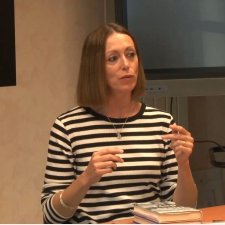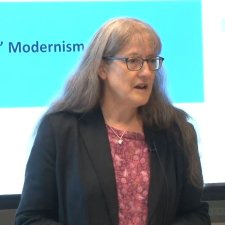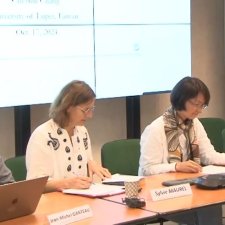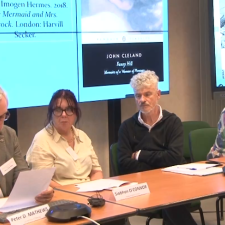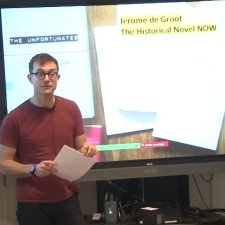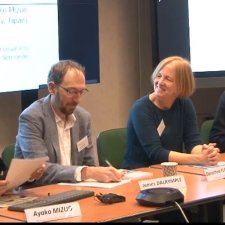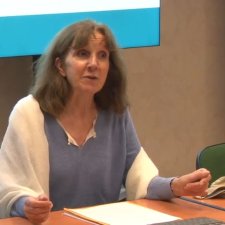Notice
Session 4 - Neo-Mythical fiction (chair : Jean-Michel Ganteau)
- document 1 document 2 document 3
- niveau 1 niveau 2 niveau 3
Descriptif
COLLOQUE INTERNATIONAL ANNUEL
SOCIETE D ETUDE ANGLAISES CONTEMPORAINES
The (Neo-)Historical in British Literature and Visual Arts (20th-21st c.)
Elsa Cavalié (Avignon Université, France), “The concept of anachronism is the historian’s truth: Uses of Anachronism in Retellings of Greek Myth”.
Drawing on Serge Zenkine and Jacques Rancière, Elsa Cavalié investigates anachronism an anachronies as strategies for renewal and defamiliarization in Pat Barker’s Trojan trilogy and Alice Oswald’s poems evoking the Iliad (Memorial) and the Odyssey (Nobody).
Justine Gonneaud (Avignon Université, France), “A Neo-Mythical Gaze on Medusa: Filling in the Blind Spots of Cultural Memory”
Justine Gonneaud addresses the feminist retellings of the myth of Medusa produced within the last decade, focusing mainly on Natalie Haynes’s Stone Blind (2023) and argues that, in the neo-historical vein, the novel aims at reappraising the cultural transformation of the character of Medusa and at questioning the mechanisms that led a collective cultural memory of a founding myth to obliterate key aspects of the original texts.
Claire Hélie (Université de Lille, France), “The Pendle Witch Trials: Exorcising Witches in Neo-Historical poetry”
Claire Hélie examines how Geraldine Monk, Blake Morrison and Camille Ralphs have recounted the 1612 Pendle witch trials so as to give a voice to their miswritten participants, showing how their poems not only use historical research in their handling of the event but also interrogate the process of history-making and writing history by experimenting with the poetic form and voice
Dans la même collection
-
Lucy Caldwell, winner of the 2023 Walter Scott Prize for Historical Fiction with These Days
CaldwellLucyLucy Caldwell, winner of the 2023 Walter Scott Prize for Historical Fiction with These Days
-
Session_5 - Neo-Victorian Biofictional narratives and Neo-historical poetry (Chair : Charlotte Wado…
Session_5 - Neo-Victorian Biofictional narratives and Neo-historical poetry (Chair : Charlotte Wadoux)
-
Diana Wallace, University of South Wales, UK "Ought it not all be re-written instantly ? : modernis…
Diana Wallace, University of South Wales, UK "Ought it not all be re-written instantly ? : modernism and the re-invention of historical fiction"
-
Session 3 - Art and materialities (chair : Vanessa Guignery)
Session 3 - Art and materialities (chair : Vanessa Guignery)
-
Session 2 - Figures of marginality (chair: Isabelle Roblin)
Session 2 - Figures of marginality (chair: Isabelle Roblin)
-
“The historical novel NOW”, Jerome de Groot, University of Manchester, UK
“The historical novel NOW”, Jerome de Groot, University of Manchester, UK
-
Session 1 - Variations on biofiction (Chair : Georges Letissier)
Session 1 - Variations on biofiction (Chair : Georges Letissier)
-


